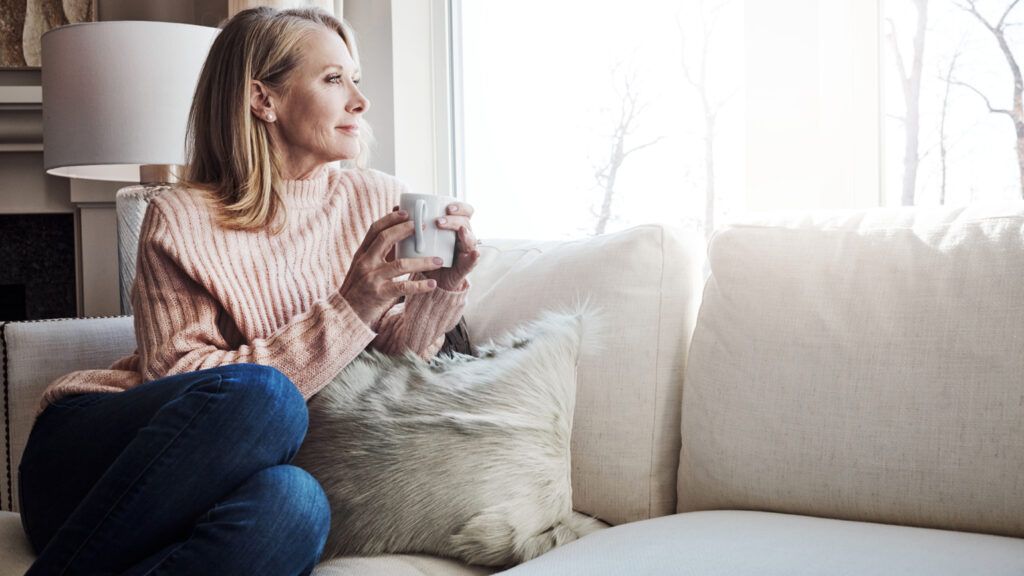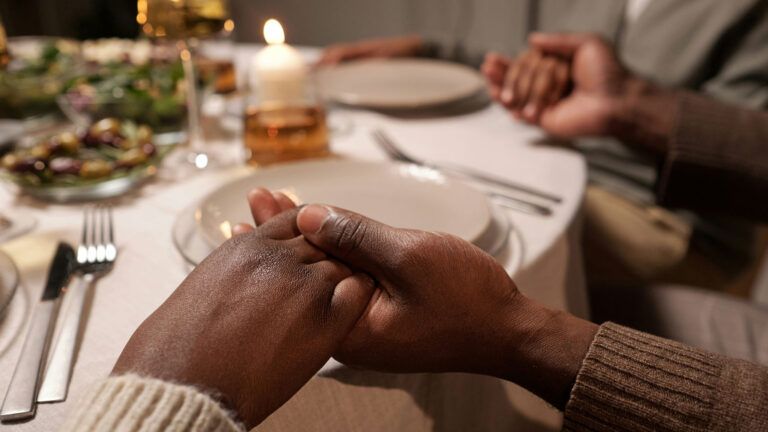It wasn’t until five years ago, when vision problems forced her then 94-year-old dad to relinquish his car keys, that Theresa Wilbanks realized she and her husband needed help with his care. Her dad, Richard Detwiler, had recovered from a stroke and had regained most of his remarkable self-sufficiency. Wilbanks and her husband had moved into his home during his rehab period, assisted briefly by home health care.
Then Wilbanks began to notice changes in her dad’s driving decisions and reflexes. “He was in denial and I was in denial,” Wilbanks told Guideposts.org. “I didn’t know about alternative transportation, and we hadn’t prepared him to have to stop driving, in terms of getting around any other way. And then all of a sudden, I became his primary source of transportation. So, it happened, and it was pretty traumatic.” Even though he has since acknowledged that he needed to give up driving at that point, Wilbanks said the transition was “really, really, really hard on him.”
It was hard on her as well. As much as she loves her dad and was determined to remain his primary family caregiver, Wilbanks realized she needed to regain some time for herself, to refresh and regroup. She was ready to explore in-home care options. The first shot out of the gate didn’t go smoothly, however. The agency she chose, on a neighbor’s recommendation, was the wrong fit. But the second one, which she found after researching much more carefully, was a match.
The owner of the second agency was happy to work with Wilbanks to find the right care aide for the whole family—even when it took two or three attempts. “A person would come out for a shift and work with us, and you could tell if it was going to work out or not,” she said. “There was one who was so quiet, and it was hard because I knew that if Dad wasn’t able to connect with her, he was going to feel uncomfortable.
We just couldn’t get anyone who was really connecting with Dad, and it made it so stressful.” Then the right person came along. “She was cheerful and chatty. She was able to draw him out and ask questions.” The aide was interested in her dad’s hobbies—painting and golfing—and he began to look forward to her visits. “He’d start saying, ‘When is she coming again?’” Wilbanks said.
Having an in-home care aide lifted a huge burden off Wilbanks’ shoulders, and the agency even helped guide her through financing the care via the VA, since her dad is a vet. Eventually Wilbanks and her husband moved out of her dad’s house because he began to need less care, but they lived close by. With the security of the home care aide in place, Wilbanks spent time at her dad’s house every day, but, after three years, she discontinued the care.
The agency no longer handled care outside the home, and that was one service Wilbanks needed the most, in addition to companion care and housework. Her dad has only recently begun to show some signs of cognitive decline, needed someone—prior to Covid-19 restrictions—to drive him on errands or simply give him an opportunity to get out, and Wilbanks needed the respite.
After discontinuing the care, Wilbanks and her husband chugged along as the sole caregivers, arranging deliveries for her dad’s medications and groceries, as well as transportation services. They paid a neighbor to visit once a day, to put an additional set of eyes on him. Then her dad began to make a few poor decisions—like climbing on a 6-foot ladder to Velcro one of his paintings to the ceiling, and mismanaging a medication. So, Wilbanks and her husband moved back in, and this time, reached out for a private care aide via community and church connections and contacts in the health care industry.
Again, they were able to find someone her dad clicked with—an “angel aide,” as Wilbanks calls her. The aide worked with them for over a year, but, due to Covid-19, had to stop coming in March. “Now that we don’t have her, my husband’s taken on a huge share of the responsibility, and that’s helped out,” Wilbanks said. “But when it’s safe again to have somebody in the home, I would definitely have her come back.”
Wilbanks created the website, Sustainable Caregiving, and has become a Certified Caregiving Consultant in order to share what she’s learned with other family caregivers. Since in-home care has been an integral part of her own journey, she described how it has helped her to de-stress by:
1. Protecting her other important relationships
When you focus entirely on your loved one’s care, you can neglect other relationships. “Once you dig that hole, you’re doing all the work, and then you look up, and all your friends and family are gone,” she said. Friends are a great stress release because they allow you to get away from it all and think about other things.
2. Giving her time to enjoy things she likes to do
“You start out helping out once or twice a week, and you feel good, and it’s manageable,” she said. “Then you start doing more and more, and then you start helping every day, and then you start to give up some of your interests and your hobbies. So, something that starts out feeling good starts to become something that you’re resentful over.”
3. Keeping her emotional well-being in check
By getting help early on, you can avoid becoming overwhelmed emotionally. “I call it the emotion trifecta—guilt, anger and resentment,” Wilbanks said. “You start to feel resentful for all the things you have to do, and then you feel guilt that you’re resentful, and then you feel anger.” The key, she said, is to decide what your limit will be, and to make a plan to get help before things get unmanageable.
4. Giving her respite for self-care
“It may be 15 minutes, when you have a cup of tea and a biscuit, and look out the window, appreciating nature. Whatever it is, you have to find time and build those things in,” she said. It’s important, she added, to let the care aide know what your daily needs are, rather than to leave that up to your loved one.
5. Seeing your loved one make new friends
“It’s good for the care recipient to have a fresh face—someone to interact with,” Wilbanks said. Her dad likes to check up sometimes on each of the care aides he’s bonded with. “It was a really rough transition for him to start accepting people to come into the home, and now he’s in touch with three of them.” One of them, in fact, just dropped off an apple pie.





